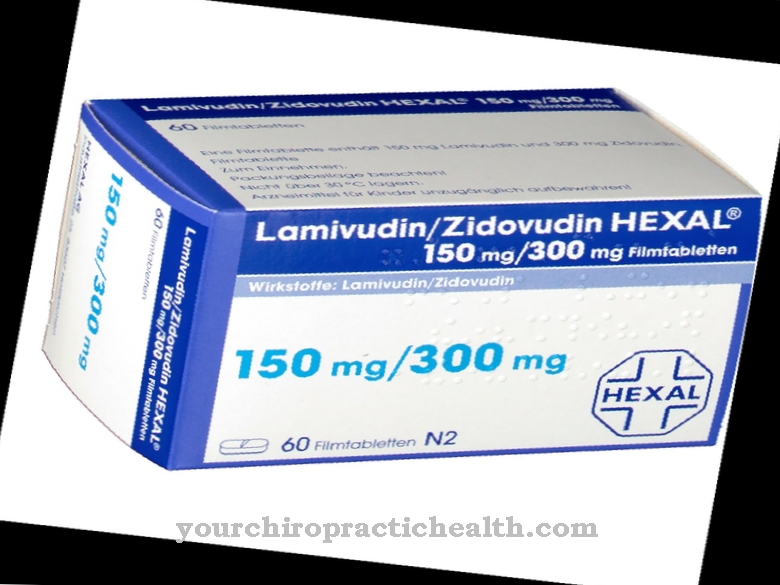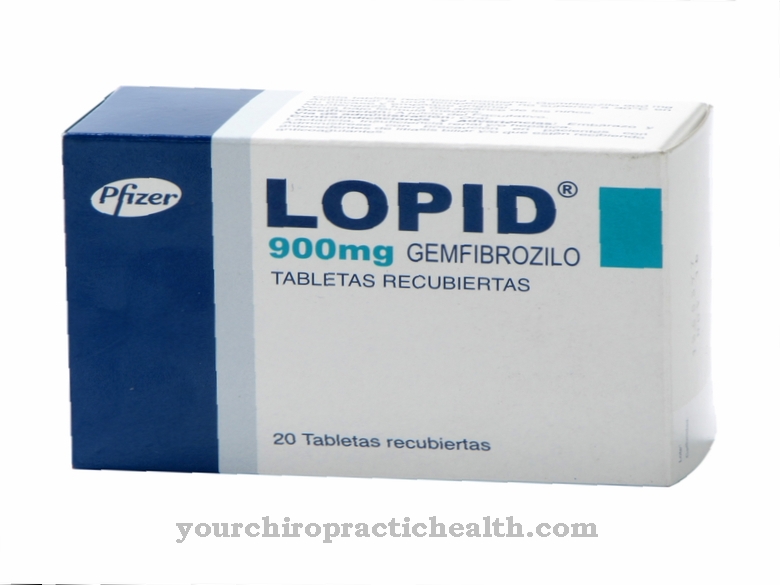Benzalkonium chloride is used as an antiseptic, often in combination with other antiseptic agents, for inflammation of the throat and mouth. In addition to this application, it serves as a preservative and disinfectant for semi-solid and liquid pharmaceutical preparations.
What is Benzalkonium Chloride?

Benzalkonium chloride belongs to the group of active substances called antiseptics and has a soap-like substance. The active ingredient is a large molecule in the form of a cationic compound that is positively electrically charged.
Benzalkonium chloride is soluble in fat and water due to its shape and charge. It is able to penetrate the cell walls of bacteria, store itself there and kill the pathogens.
Pharmacological effect
Medicinally, benzalkonium chloride is used as an antiseptic to treat inflammation in the throat and mouth. Due to its fine, soap-like substance, it lays on the inflamed mucous membrane of the mouth and throat and counteracts the bacteria that cause inflammation.
The antiseptic contains a large molecule that has an electrical charge through its cationic connection, making it soluble in both fat and water. As a cation with an electrical charge, the substance has hydrophilic and lipophilic properties that enable the antiseptic agent to be incorporated into the cell walls of the bacteria that are responsible for the inflammatory processes in the mouth and throat. It is deposited there, making the bacteria permeable and preventing further bacterial growth. This growth inhibition causes the death of the pathogen.
Due to its broad spectrum of activity, benzalkonium chloride combats both gram-negative and gram-positive bacteria. The active ingredient is also used pharmaceutically as a preservative and disinfectant for semi-solid and liquid medicines such as creams, sprays and eye and nose drops. The antiseptic inhibits the growth of germs and kills these pathogens in the manufacture of pharmaceutical preparations. As a disinfectant, it works against yeast, algae, fungi and bacteria.
Benzalkonium chloride has an antiviral effect to a small extent. Due to its surface-active mode of action, benzalkonium chloride is also used as a disinfectant and cleaning agent in hospitals and medical practices. It is also suitable for disinfecting laundry and as an algicide in swimming pools.
Medical application & use
The main indication for the use of this antiseptic is inflammation in the mouth and throat, which are due to infections. Typical side effects are difficulty swallowing, sore throat and general malaise.
With topical (local) application, the antiseptic is well tolerated. Even as a lozenge, concentrate or spray solution, it rarely has dangerous side effects. Only when using eye drops that contain benzalkonium chloride as a preservative should you be extremely careful and, in case of doubt, seek the advice of an ophthalmologist or optician.
Antiseptic preservatives in eye drops have been used since 1978. Eye drops that contain this active ingredient reduce the stability of the tear film and, if used regularly, cause inflammation of the surface of the eye, which causes so-called "dry eye". The cornea is attacked, which leads to considerable damage to the deeper cell layers. If a tear substitute liquid based on this active ingredient is used and then eye drops containing another active pharmaceutical ingredient, this penetrates deeper and faster into the corneal layers. The consequences are undesirable enhancements and side effects.
An alternative are eye drops that contain no or alternative preservatives. The ophthalmologist decides in each individual case about the advantages and disadvantages and when the expected benefit is greater than any risk involved. Contact lens wearers and patients with dry eyes and glaucoma should give preference to preservative-free eye drops. Information can also be obtained from the German Ophthalmological Society (DOG).
Risks & side effects
Benzalkonium chloride is generally a safe antiseptic or disinfectant. However, in this case, too, there are some special features to consider. The antiseptic must not be used if you are known to be hypersensitive to one or more of the ingredients.
There are no special regulations for use in children and adolescents; pregnant women and nursing mothers can also use the antiseptic. Very few side effects are known. In addition, they rarely occur. These include allergic skin reactions, redness or itching.
The general experience is that benzalkonium chloride is well tolerated when applied to the affected mucous membranes. A contraindication are fresh and large sores in the oropharynx.
One positive aspect is that this active ingredient does not cause cross-resistance with other antiseptics. The pathogens treated with benzalkonium chloride do not become resistant to other substances from the group of antiseptics. For this reason, no interactions with other substances or pharmaceutical preparations are known.



























